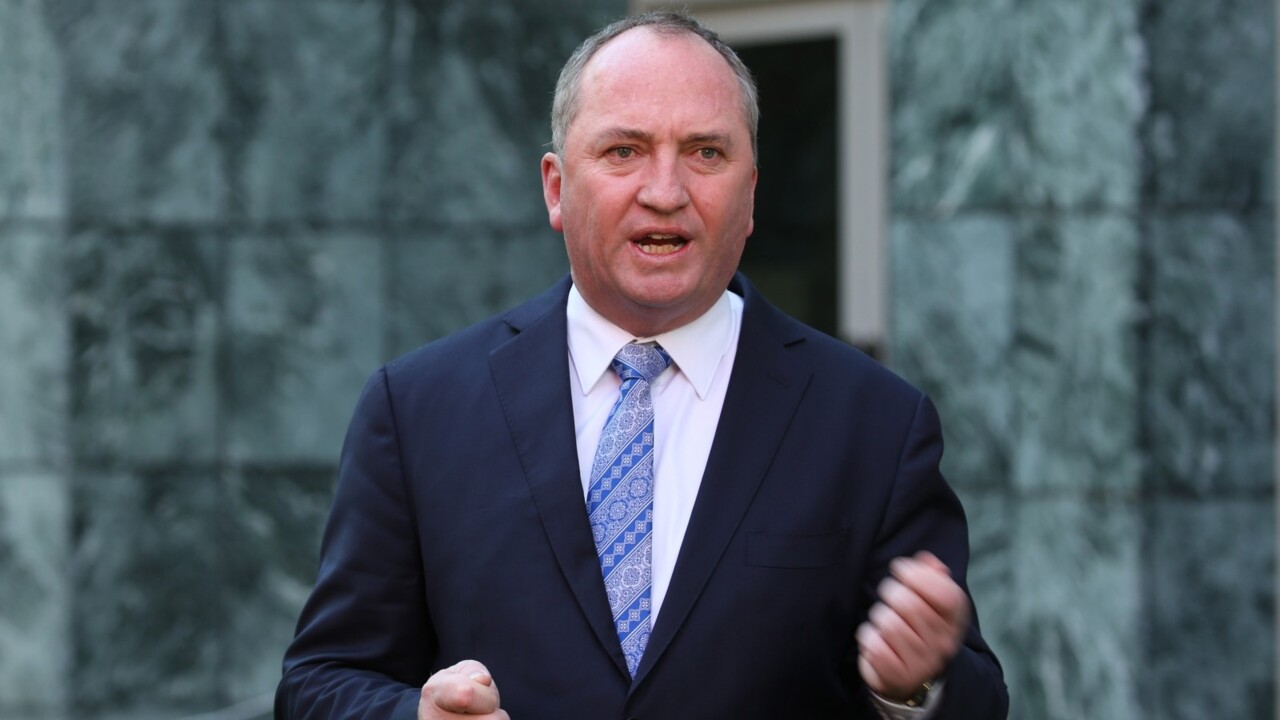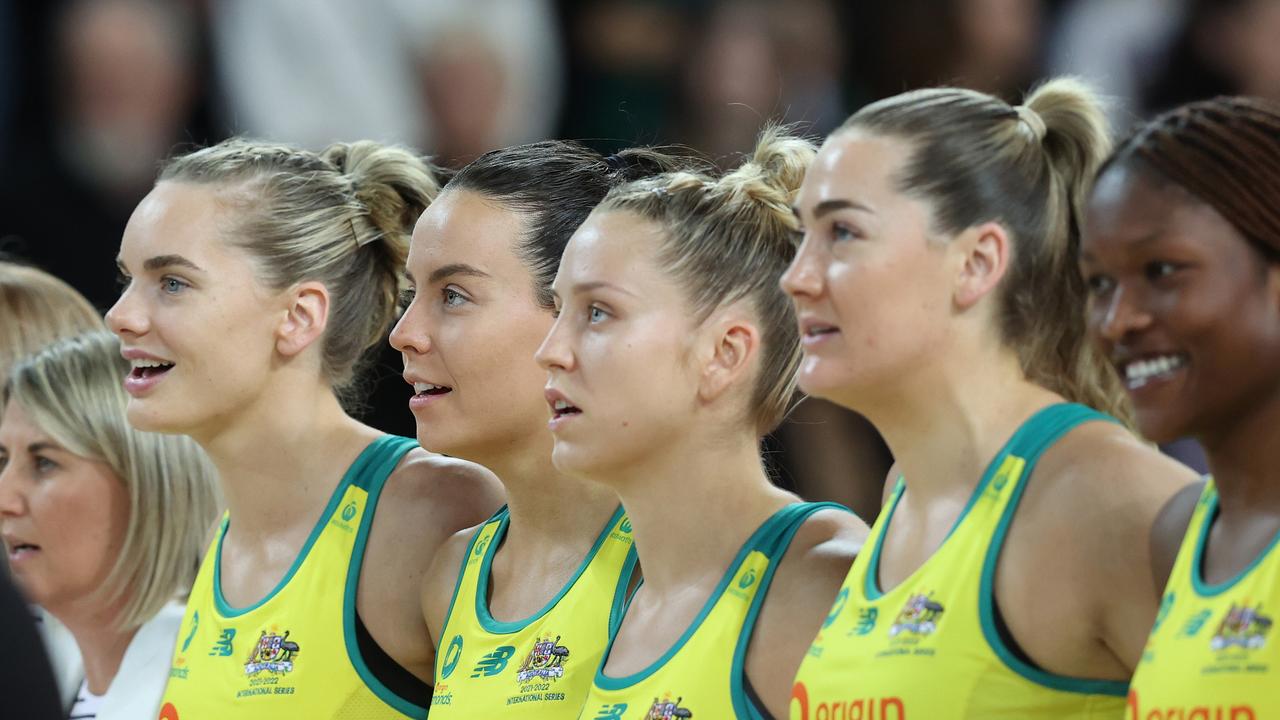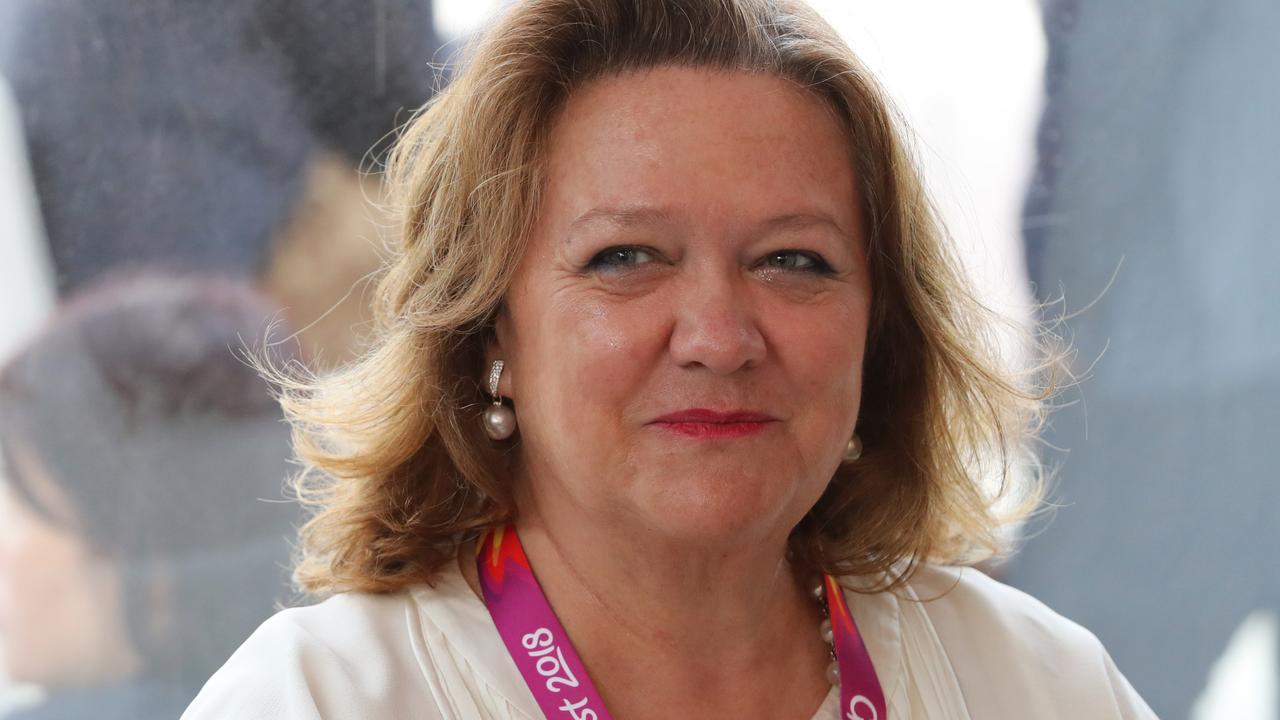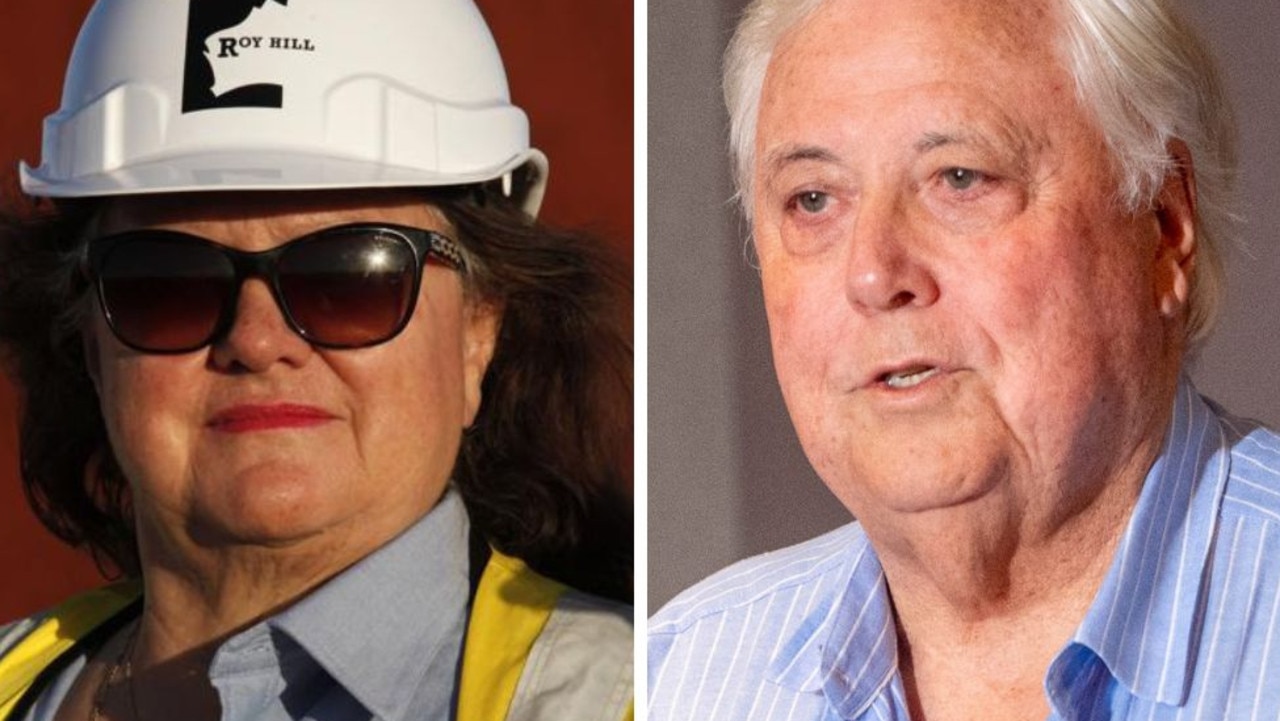Glaring issue with outrage over Gina Rinehart’s tax affairs as Netball Australia saga rages
The furore surrounding Netball Australia’s sponsorship debacle continues to rage – but there’s a glaring issue with one of the biggest arguments.

The furore surrounding Netball Australia’s sponsorship debacle shows no sign of fading, with Aussies divided over who is truly at fault.
As a quick recap, the saga began after it emerged that Diamonds players were concerned about wearing a team uniform that included sponsorship branding from Gina Rinehart’s company Hancock Prospecting.
It is understood Indigenous player Donnell Wallam did not feel comfortable wearing a uniform with the logo as a result of shocking comments made by Ms Rinehart’s father Lang Hancock in the 1980s, when he infamously suggested that Indigenous Australians should be sterilised to “breed themselves out” in coming years.

After days of turmoil, Hancock Prospecting eventually announced last weekend that it had decided to “regrettably withdraw” its proposed $15 million partnerships with Netball Australia and Netball WA as a result of the branding fracas, leaving the sporting organisation “disappointed” and “reasonably concerned” about its financial future.
Since then, debate over the controversy has raged on and on, with the public seemingly divided into two camps – those who believe politics should be kept out of sport and that the players’ stance amounted to “woke virtue signalling”, and those who were disgusted that Australia’s richest person would withhold the much-needed funds, and fail to publicly denounce her father’s obviously heinous words.
A great deal of attention has also turned to Rinehart personally in recent days, with many Australians on the players’ side of the debate accusing the mining magnate’s company of not paying enough tax.
But does that argument actually stack up?
Gina Rinehart’s $15 million netball sponsorship deal equates to about 0.0375% of her net worth.
— Daniel Bleakley (@DanielBleakley) October 22, 2022
It’s estimated that her successful “axe the tax†campaign against Rudd’s mining tax has cost the public tens of billions of dollars over the last decade.
Imagine if Gina Rinehart and other mining billionaires paid appropriate taxes. Not only could women’s sport be funded, fewer children would go hungry and fewer people would be homeless. As it is, accepting money from such greedy oligarchs would be utterly reprehensible.
— Avril (@DocAvvers) October 22, 2022
So Gina Rinehart chose to stop sponsoring a netball team instead of saying she doesn't agree with her dad that Aboriginal people should be sterilised out of existence?
— Media Analyst (@MediaAnalystOz) October 23, 2022
Why do we let these horrific billionaires steal so much of our shared national wealth?
Proper mining taxes NOW
It is true that Rinehart is a vocal supporter of company tax cuts, and that in 2016 she came out swinging against a proposed $7.2 billion mining tax, claiming it would “obviously” hurt the industry.
But in the 2021 financial year, the taxes paid by Hancock Prospecting also increased to a whopping $2.7 billion, after the firm netted a staggering $7.3 billion profit.
As an independent, privately-owned company that’s not listed on the ASX, it is widely accepted that Rinehart could be Australia’s biggest individual taxpayer – a claim she herself made back in 2018 after it was announced her company paid nearly $5 billion in taxes over eight years.
“Mrs Gina Rinehart, personally and through HPPL (Hancock Prospecting) private group, pays more tax than any other Australian,” the company said in a statement at the time.

“Mrs Rinehart continues to primarily direct investment into Australia and pays substantial taxation in Australia, while providing employment and opportunities for many thousands of Australians, directly and indirectly.”
And that’s where a major hole in the argument emerges.
Like her or loathe her and her business, Rinehart clearly does pay a significant amount of tax, while many of our tech billionaires, including several outspoken supporters of renewables, simply do not – while at the same time escaping public vitriol.
So it turns out Gina Rinehart pays 3 times the percentage of tax compared to the “renewables billionairesâ€
— Morty 🸠(@MortyAUS) October 24, 2022
🙃
The tax paid is clearly small fry compared with the company’s overall profits and Rinehart’s own vast wealth, but the argument does reveal some major double standards at play when it comes to the public perception of our wealthiest citizens and their tax affairs.
For example, in 2020, AFR columnist Joe Aston laid into billionaire environmental advocate Mike Cannon-Brookes, whose tech company Atlassian pays zero company tax to Australia on greater than $1 billion of revenue booked locally.
“In 2014, Cannon-Brookes and (Atlassian co-founder) Scott Farquhar embarked upon a highly complex London-based structure that enables the arbitrage of global tax codes and ensures their tech darling will pay very little tax for a very long time,” Aston wrote.

“There’s nothing improper about that.
“But by comparison, Gina Rinehart’s Hancock Prospecting paid $352 million of company tax to the Australian Taxation Office in FY18 (to say nothing of mining royalties). Andrew Forrest’s Fortescue paid $393 million.”
Mr Cannon-Brookes defended Atlassian’s tax record in an interview with the Sydney Morning Herald soon after, insisting that Atlassian followed “all of the tax rules in all of the geographies we operate in”.
“We are a large global business now and it is incredibly complicated. We make no pretence that we spend a huge amount on research and development,” he said, adding Atlassian spent 37 per cent of its revenue on R&D.
But in 2019-20, the tax paid by Atlassian was just 9.76 per cent of it’s taxable income, while Hancock Prospecting paid the full 30 per cent, and fellow mining juggernauts Fortescue, Rio Tinto and BHP also paid close to the full amount.
When it came to other tech giants, Afterpay paid zero tax, as did Canva, while a string of firms linked to renewables such as Acciona, Infigen and Goldwind also paid no tax.
It comes amid growing calls for renewable or tech companies to pick up Netball Australia’s tab, following reports that Netball Australia is now facing a sponsorship crisis to the tune of $25 million if other spooked sponsors were to also backtrack.






